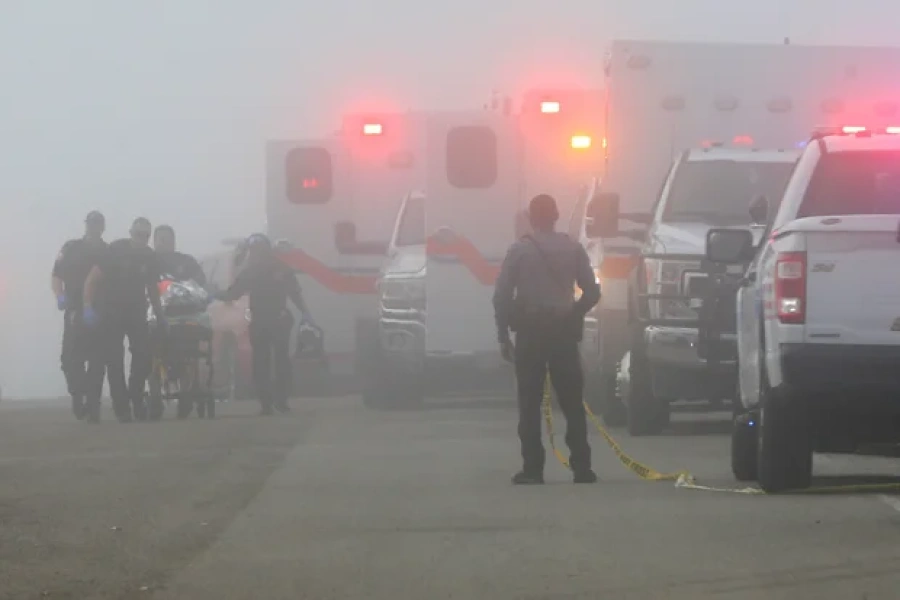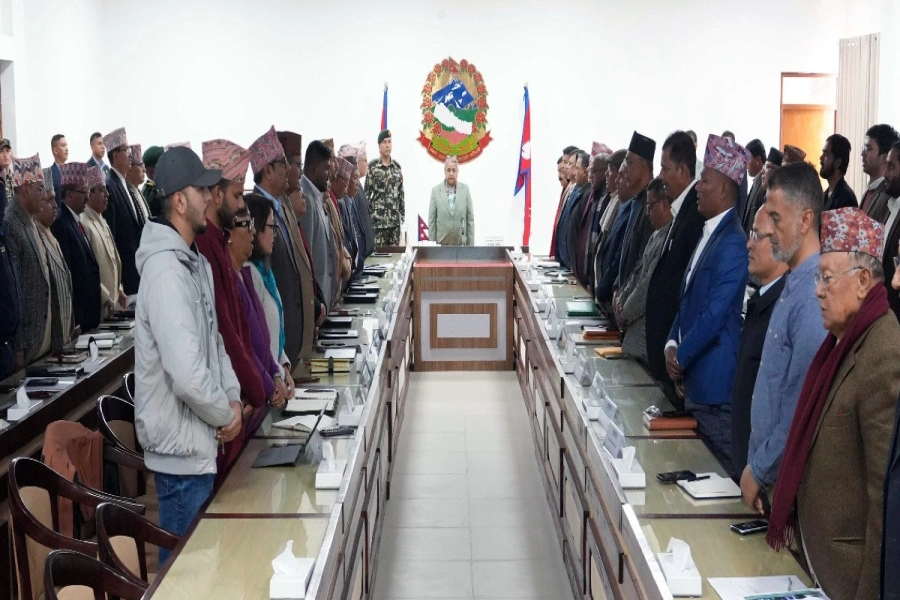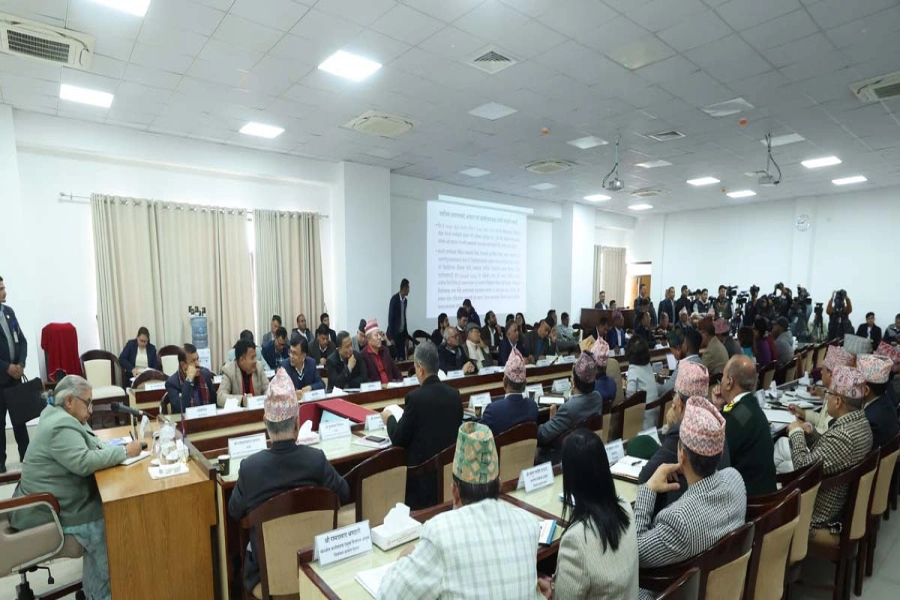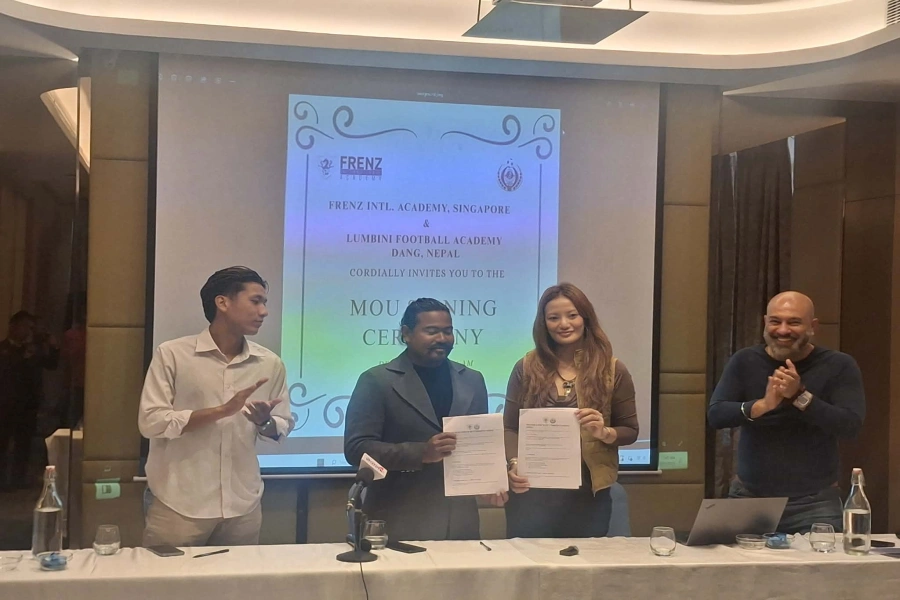Baje, a white American who speaks colloquial village Nepali, earned the title of grandpa as he lived in Nepal for more than forty years before moving back permanently to his native country recently. He is of a good height and sturdily built.[break]
Charlie Das, a self-styled Baba from Ireland, is lanky and taller than Baje, but so lean that in front of him Baje certainly looks overfed, if not overweight.
Had Charlie not so plainly appeared a bideshi, his beard and long, matted locks certainly would have commanded respect called for by local sadhus. Instead, I feared that to most villagers he simply looked like a hippie.
Except for some who mistook me for a foreigner, most people easily recognized me as a local bred because of my black hair, average height and a light complexion not as glowing as those of the two westerners with me. In fact, walking together with them made me stand out even more, leaving no shred of doubt about my origin.
Baje, Charlie Das and I, I’ll admit, were definitely an odd mix; odd enough to incite a first impression of apprehension in anybody.
Still, nowhere along the way did people make us feel unwelcome, except this godforsaken village called Bakhre Jagat (“Goat County”), where we were not only refused lodging but virtually pooh-poohed out in a humiliating manner.
When we started in the morning from a village in the foothill, it was all bright and sparkling and everything was unusually quiet. Occasionally, birdcalls from far-off jungle in the mountains penetrated the silence; otherwise, all we could hear was ourselves breathing.
The place where we stopped to eat was an isolated house in a very sparsely inhabited village. The house was situated at the base of terraced fields and from its verandah, which ended abruptly to a steep slope, we could scan the gorges right beneath and the never-ending array of hills far off.
Though we were charged dearly for the food, considering the facilities we were allowed to use, it didn’t seem like we were being ripped off.
Next, we arrived at a small Tamang village with rows of mud-plastered houses on both sides of the trail that ran through it. We decided to stop there for tea.
The strange thing that we noticed about the village was the conspicuous absence of adult males. We saw many children, some women and elderly people but no men.
A jovial young lady offered to make tea for us. She told us that she got married just a few months ago and that her husband was in the Gulf for employment.
She was wearing blue shorts and a yellow t-shirt, prompting us to joke if she was a member of a football team. She didn’t say anything, just went inside and brought a photograph from her schooldays.
Indeed, she was a member of her school’s football team. She told us she was a bright student and had a deep interest in studies but had to quit school after she was married off. We saw other young women her age and we knew their stories couldn’t have been much different.
Sitting there as we sipped tea, dark clouds began gathering up in the hills. We asked the women how far the next village was. “The next village is beyond that steep cliff,” the young lady said. “It’s called Bakhre Jagat.”
As the clouds looked more and more threatening, we scampered along the trail cut across a cliff face, so narrow that it was barely enough for one person to pass. The trail got even narrower at some places that were being blasted for a motor road, forcing us to lean against the cliffside to keep from falling off.
But difficult trail was something we were prepared for. What was totally unexpected was a cloudburst and rough winds that made already a difficult trail terrible.
The small umbrella I was carrying could not protect me from the sudden torrent that, aided by unpredictable winds, hit us from all directions.
By the time we reached Bakhre Jagat, we were completely drenched.
The village was enveloped in a pall of haze partly due to the mist left behind by the rain clouds and partly due to the smoke wafting from the roofs of almost every house.
As we walked into the village, we saw houses on the left and the right along the straight line formed by the main trail. Some of the tightly knit clusters of small homes were built of wood with metal roofing, others mostly of wattle and thatch.
The place had the feel of a makeshift refugee settlement built in haste by people who had moved from another place overnight—though, in fact, it was a very old
Gurung village.
It was still raining, though the downpour was now reduced to a drizzle.
We asked the first person we saw if there was a hotel. He was drunk and hobbled away just grinning at us. We then stopped at a place that looked like a hotel.
A group of people was having raksi and chatting. We asked them if there was a place where we could spend the night. For a moment they just stared at us and then they murmured suspiciously, all of which culminated in deprecating guffaws.
In the next place, a woman said she had rooms but flatly refused to host us.
Another house, where we thought we had a chance, was a large two-storey wooden structure that, we were told, was some sort of a training center. The house seemed to have enough rooms for accommodating a football team. But the two women who lived there refused to even consider spending night with strange men in the same house.
Everyone looked at us curiously, some from balconies, some from upstairs windows and some from their verandahs. But the moment we looked at them, they averted their eyes. The denial spread throughout the village like a contagion. People withdrew and turned a deaf ear to our entreaties for a night’s stay.
By that time, Bajey lost his cool. In no nonsense terms, he asked for the village headman. A man in his forties came forward timidly.
“As the headman of the village, it’s your duty to get us out of this uncomfortable situation,” Bajey told him, almost admonishingly.
That brought the headman out of his drunken stupor. It was only then that he agreed to solve our problem. He took us to a house in another settlement some 25 minutes walk from the main Bakhre Jagat area.
The house had enough rooms so that each of us could sleep in separate rooms. Before he left, the headman also made arrangement for our dinner which was to be served at a different house that belonged to a former Nepal Army soldier.
The sumptuously prepared dinner and the pleasant manner in which the ex-army man and his mother treated us helped us overcome the disgust brooding inside us against the folks of Bakhre Jagat.
Upon our return from the trip, we shared our story with some of our friends. One of them wondered, “Is this a village in Nepal?”
Another with some knowledge about the village said, “Well, that’s Bakhre Jagat, alright!”
The writer is a copy editor at Republica. He admires Gabriel Garcia Marquez and wishes to someday write a novel imitating his style.
Sakhwa's role in social justice history memorable: PM Dahal
_20230329122016.jpg)









_20211006150830.jpg)



























